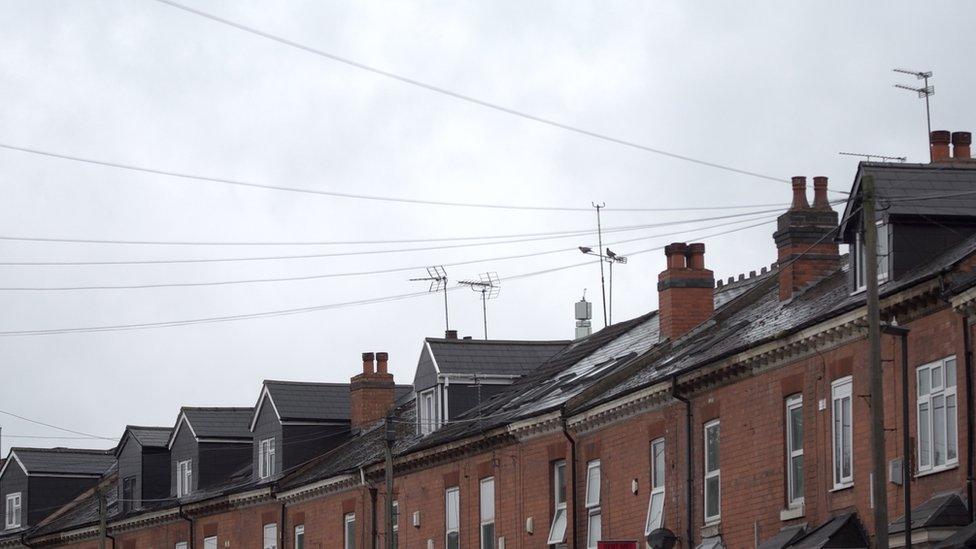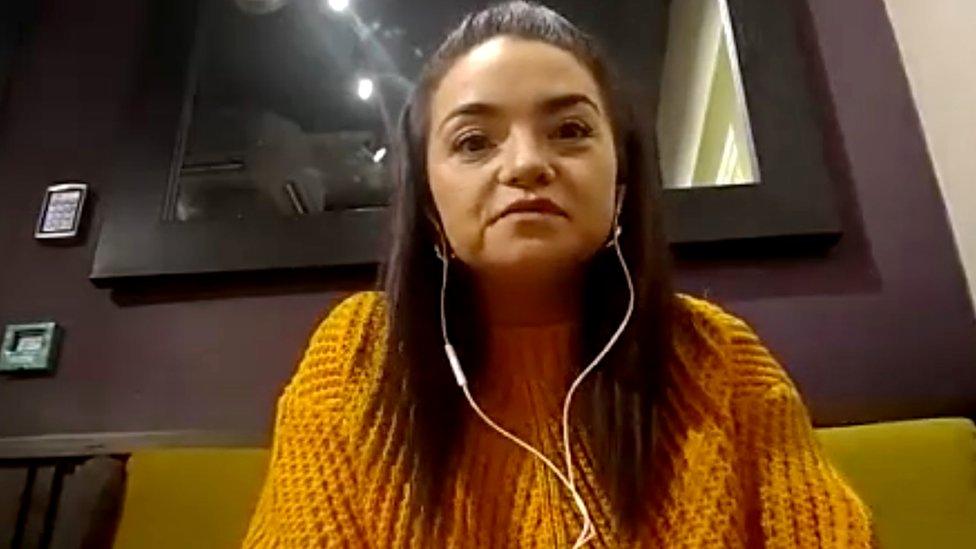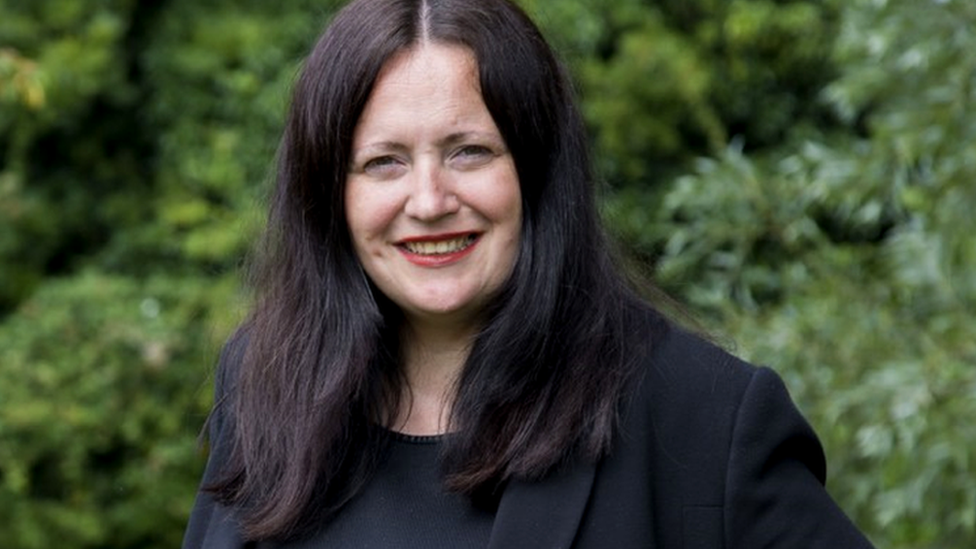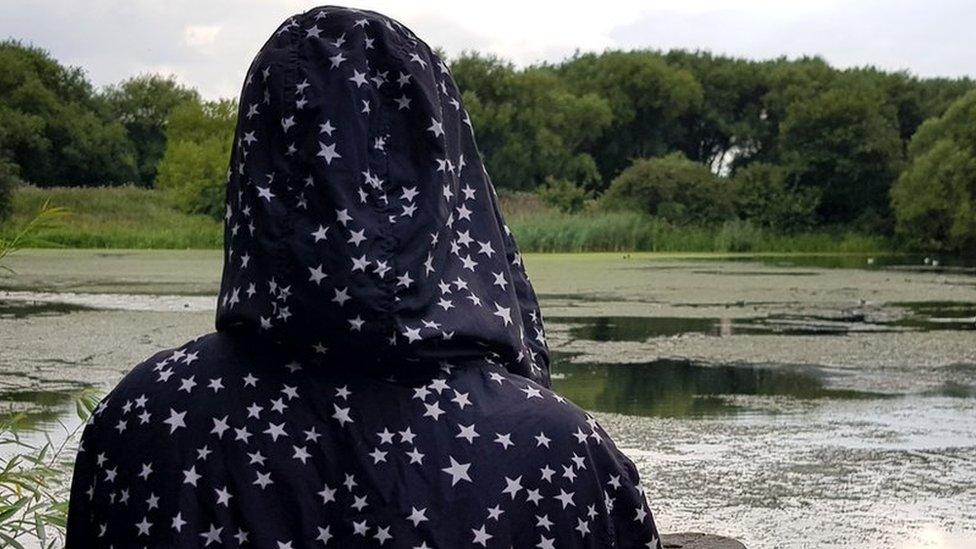Supported housing: Inquiry launched after concerns
- Published

The number of supported accommodation rooms in Birmingham has doubled since 2018
An inquiry has been launched to examine vulnerable people's support when living in supported accommodation.
The Levelling Up, Housing and Communities Committee will look into so-called exempt housing issues across the country.
The number of supported housing rooms in Birmingham has doubled in the past three years to 22,000 rooms and will be a focus of the inquiry.
Committee chair Clive Betts said he was "concerned" at the rise.
Anyone from ex-offenders to someone in receipt of universal credit can access supported accommodation, which is paid for by housing benefit.
However it is exempt from caps such as Local Housing Allowance, which has seen some providers abuse the system - over charging and providing little or no support.
West Midlands Mayor Andy Street, the city council and Birmingham MPs are among some of the people who have called for an inquiry.
As part of the review, the committee will speak to people, external about their lived experience in this type of accommodation as well as charities and local councils from January.

'It's ruining people's lives'

'I won't stop until something is done,' said Ms Halligan
Lauren Halligan has lived in three supported accommodation properties in Birmingham over the past 18 months and welcomed an inquiry to bring "much needed change".
"I think this is exactly what needs to happen," she said. "If people don't speak up, nothing is going to happen. We can't sit there and not do nothing about it.
"I'm so passionate about this and I want people to do something about it because it's ruining people's lives."
While living in supported accommodation Lauren said she witnessed violence, drugs and people suffering from severe mental health problems.
The 30-year-old said she wanted "a whole new system" introduced which is set up to support people "and give them hope - and help them".
"People are begging for help, I begged for help and I didn't get it - to the point I was suicidal. It's not right, that's not OK," Ms Halligan said.


Clive Betts said the inquiry will also examine regional disparities
Landlords can apply for provider status, exempting them from local licensing regulations and housing benefit caps. This means councils have few powers to act over the quality and safety of accommodation or how tenants are treated.
Mr Betts said: "When provided at a decent standard and with proper support, exempt accommodation can be a lifeline for extremely vulnerable people and a vital piece of the social housing landscape.
"But, in the hands of neglectful landlords, pocketing taxpayer money to provide this housing, this accommodation can fall woefully short of the support that's needed.
"In this inquiry we will aim to find out how exempt accommodation should best be provided and regulated, and how regulation should be enforced. We will also examine why there may be regional disparities in the quality of exempt accommodation."
A Freedom of Information request showed there had been a 62% increase in five years of households being housed in exempt accommodation, the homeless charity Crisis said.
'Living nightmare'
Earlier this year a pilot was carried out in Hull, Blackburn, Blackpool, Bristol and Birmingham in a bid to try and tackle the rise, which is now being reviewed by the Department of Levelling Up, Housing and Communities.
A BBC News investigation in August spoke to people about their first hand experience of the "living nightmare" in exempt accommodation and raised issues about safety, organised crime and lack of support for vulnerable people.
Birmingham councillor Sharon Thompson said supported accommodation had "grown exponentially" while the council continued to try to tackle its "concerning growth".
Councillor Thompson, who is chair of the WMCA homelessness taskforce, added: "We need Government to strengthen the legislation in the sector and I hope that a select committee inquiry can help to bring about the changes that we need to see."

Follow BBC West Midlands on Facebook, external, Twitter, external and Instagram, external. Send your story ideas to: newsonline.westmidlands@bbc.co.uk, external
- Published21 October 2021

- Published16 August 2021
